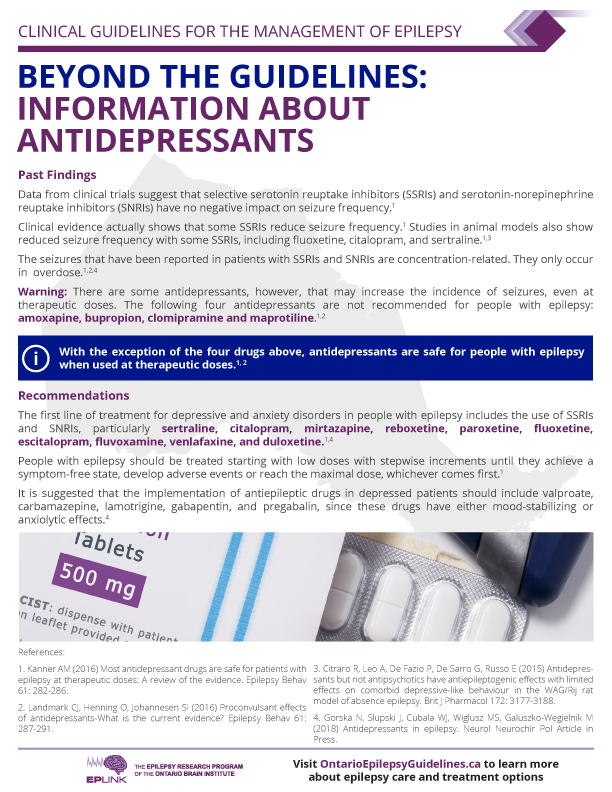Click here to download a PDF of the info sheet.

Data from clinical trials suggest that selective serotonin reuptake inhibitors (SSRIs) and serotonin-norepinephrine reuptake inhibitors (SNRIs) have no negative impact on seizure frequency.
Clinical evidence actually shows that some SSRIs reduce seizure frequency. Studies in animal models also show reduced seizure frequency with some SSRIs, including fluoxetine, citalopram, and sertraline.
The seizures that have been reported in patients with SSRIs and SNRIs are concentration-related. They only occur in overdose.
Warning: There are some antidepressants, however, that may increase the incidence of seizures, even at therapeutic doses. The following four antidepressants are not recommended for people with epilepsy: amoxapine, bupropion, clomipramine and maprotiline.
The first line of treatment for depressive and anxiety disorders in people with epilepsy includes the use of SSRIs and SNRIs, particularly sertraline, citalopram, mirtazapine, fluoxetine, escitalopram, fluvoxamine, venlafaxine, and duloxetine.
People with epilepsy should be treated starting with low doses with stepwise increments until they achieve a symptom-free state, develop adverse events or reach the maximal dose, whichever comes first.
It is suggested that the implementation of antiepileptic drugs in depressed patients should include valproate, carbamazepine, lamotrigine, gabapentin, and pregabalin, since these drugs have either mood-stabilizing or anxiolytic effects.
